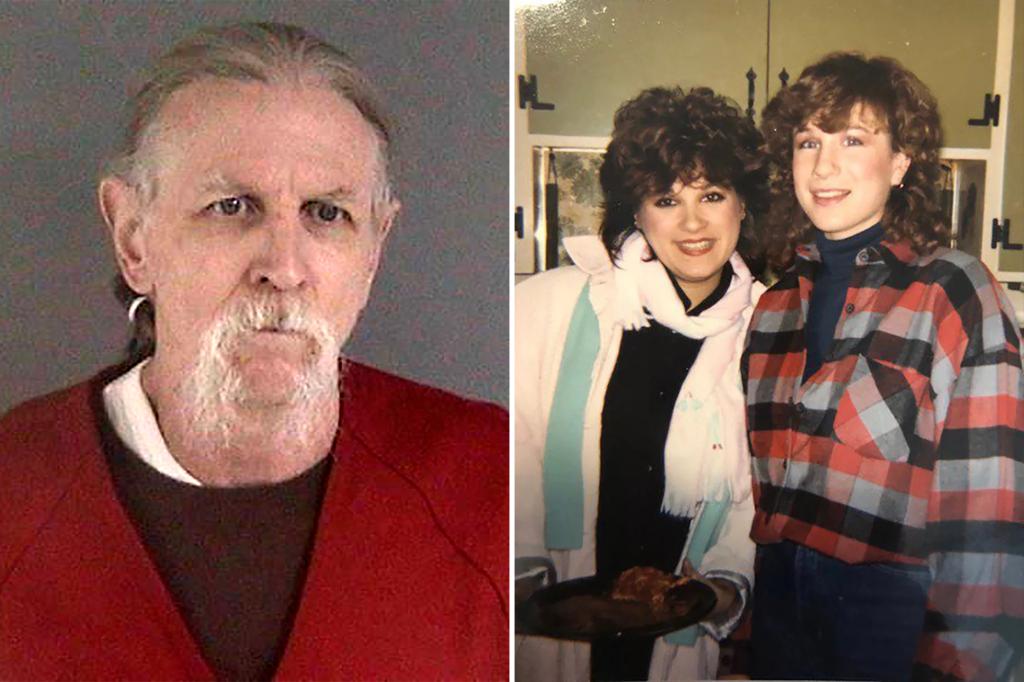The courtroom fell silent as the families of Jennifer Duey and Michelle Xavier prepared to deliver their impact statements, decades of grief and anguish etched on their faces. They sought closure, a semblance of justice for the daughters stolen from them in the winter of 1986. But the man responsible for their immeasurable pain, 63-year-old David Misch, had a different plan. Instead of listening to the heart-wrenching testimonies, Misch launched into a jarring rendition of “99 Bottles of Beer on the Wall,” his callous act reverberating through the hallowed halls of justice. The judge swiftly ejected Misch, but the chilling melody continued, a haunting counterpoint to the families’ silent tears, even as Misch was escorted to a holding cell. This grotesque display of indifference underscored the depths of Misch’s depravity, a man already serving a life sentence for another murder, now facing the consequences of his decades-old crimes.
Misch’s courtroom antics drew sharp condemnation from prosecutors, who denounced his behavior as “reprehensible” and a blatant demonstration of his utter lack of remorse. For nearly 40 years, the families of Duey and Xavier had waited for justice, their lives irrevocably altered by the senseless murders of their loved ones. The two young women, last seen at a convenience store after a birthday party, were found lifeless on the side of a desolate road in the Fremont Hills. The cold case, initially stymied by a lack of conclusive evidence, was resurrected in 2016 by a newly formed cold case unit within the Fremont Police Department. Advanced DNA technology, unavailable in 1986, finally provided the breakthrough, linking Misch to DNA found under Duey’s fingernails. A partial license plate number, etched onto Xavier’s hand in a desperate attempt to identify her attacker, further solidified Misch’s connection to the crime.
Despite the overwhelming evidence, Misch offered a preposterous explanation, claiming he had witnessed the women being kidnapped at gunpoint and had attempted to intervene. This feeble attempt at exoneration, offered in 2003 while Misch was already incarcerated for a 1989 murder, was easily dismissed by investigators. Misch’s history, riddled with drug abuse, commercial burglaries, and a propensity for violence, painted a clear picture of a dangerous predator. The secluded location of the murders, coupled with the victims’ apparent struggle, led prosecutors to believe Misch had lured the women with the intent of sexual assault, resorting to murder when they resisted. The December 2022 guilty verdict brought a small measure of solace to the grieving families, though the pain of their loss remains an open wound.
The court imposed two consecutive 25-years-to-life sentences on Misch, ensuring he would spend the remainder of his days behind bars. This sentence, added to the life sentence he was already serving, effectively extinguished any hope of his release. Misch, incarcerated at Santa Rita Jail, will now be transferred to a state prison to begin his extended sentence. The gravity of his crimes, compounded by his callous courtroom behavior, solidified his image as a remorseless killer, devoid of empathy and human decency. The families, though relieved by the verdict, continue to grapple with the enduring pain of their loss, the echoes of Misch’s courtroom serenade a stark reminder of his monstrous indifference.
However, the story of David Misch’s reign of terror does not end with the Duey and Xavier murders. In a chilling revelation, Misch was implicated in yet another heinous crime, the 1988 kidnapping and murder of 9-year-old Michaela Garecht. This case, which had haunted the Bay Area for decades, took a dramatic turn when Misch emerged as a prime suspect. The details surrounding Michaela’s disappearance are eerily similar to the Duey and Xavier case, further solidifying the belief that Misch was a serial predator. The Garecht case, still pending trial, adds another layer of complexity to Misch’s already extensive criminal history, painting a portrait of a man seemingly without conscience.
The upcoming trial for Michaela Garecht’s murder promises to reopen old wounds and bring fresh anguish to another grieving family. The community, already reeling from the revelations of Misch’s past crimes, braces itself for another painful chapter in this saga of violence and loss. The weight of evidence against Misch, coupled with his established pattern of predatory behavior, paints a grim picture for his defense. As the legal proceedings unfold, the families of his victims, united by their shared grief, will continue their quest for justice, seeking some measure of solace in the face of unimaginable tragedy. The courtroom, once again, will become the stage for a battle between good and evil, a stark reminder of the darkness that can lurk beneath the surface of ordinary life.

